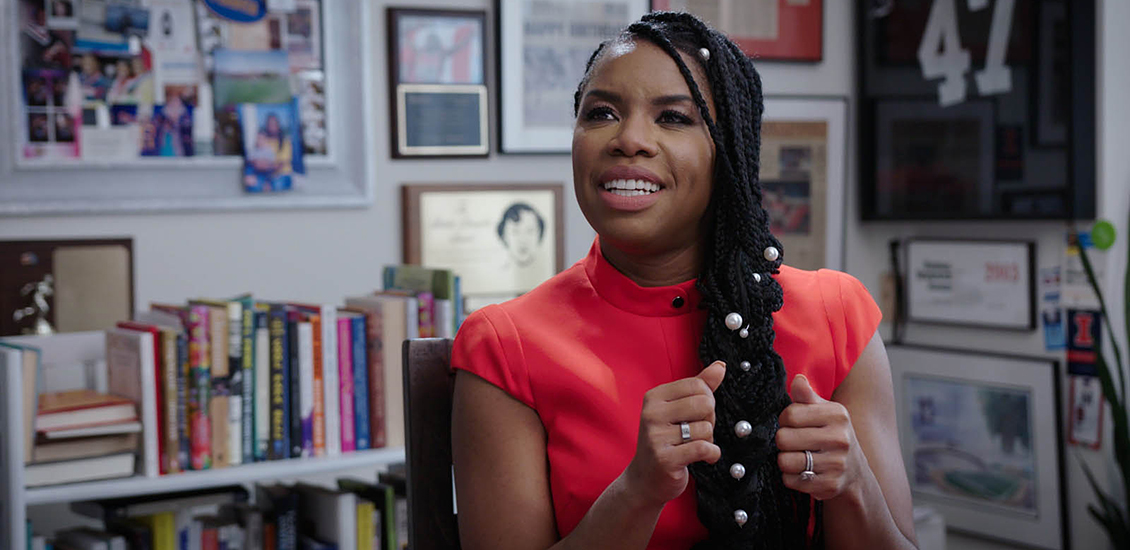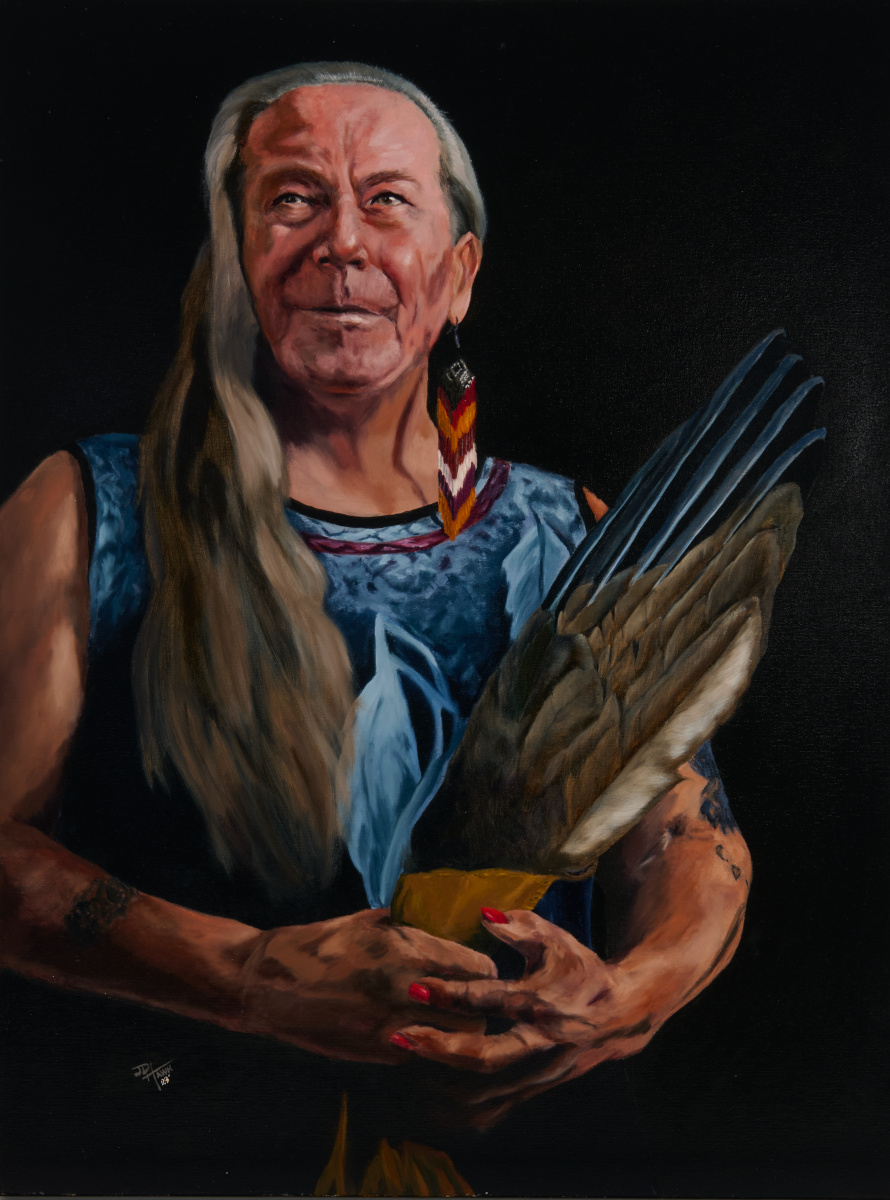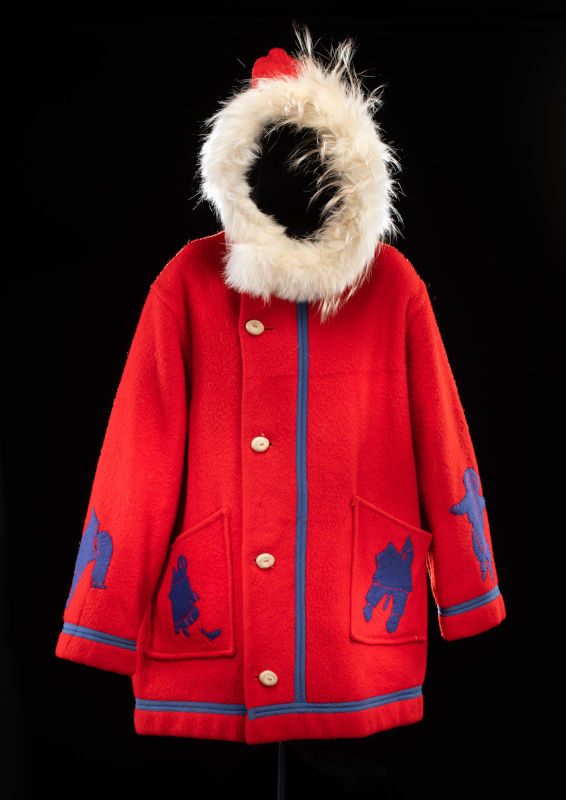It is, admittedly, a rather strange artifact: a sweater knit entirely from human hair — 100% gay human hair, that is. Created in 2015, the “Gay Sweater” is a 1.8 kilogram (roughly 4 pounds) cardigan complete with rainbow buttons (also made from dyed hair!). It will likely raise some eyebrows and start some interesting conversations when displayed by the Canadian Museum of History.
The Gay Sweater is also a great example of how the Canadian History Hall will be presenting ongoing Canadian stories and experiences. Gallery 3 of the Hall covers the period from around 1914 to the present. This means that none of its chapters are finished. A key gallery message is that history is ongoing — challenges, experiences and successes continue to shape Canadian society.

The Gay Sweater is made from 100% gay human hair. Images from Saatchi & Saatchi Canada and courtesy of the Canadian Centre for Gender and Sexual Diversity.
Our chapter on diversity and inclusion will contain a section on the more recent evolution of LGBTQ2S rights and recognition in Canada. To illustrate how members of the Canadian LGBTQ community continue to work for change, we will use examples of recent and ongoing activism for equal marriage and the rights of trans people. Campaigns to raise awareness and combat homophobia and transphobia, like the Day of Pink, will also illustrate the ongoing nature of the story.
The Gay Sweater is the creation of the Canadian Centre for Gender and Sexual Diversity (CCGSD), an organization that promotes diversity, safety and acceptance for gender and sexual minorities. A major focus for the CCGSD is anti-bullying and anti-discrimination education. Staff and volunteers at the CCGSD developed the idea of the sweater.
The CCGSD’s founder and director, Jeremy Dias, explains that “80% of bullying language is homophobic in nature, and ‘that’s so gay’ is one of the most common expressions used to express insult. We thought that by literalizing the expression, we could challenge the oft-used expression of labelling something as ‘gay’ as an insult. The joke is now that there actually is something ‘that is soo gay’ — and we have noticed that people understand and change their behaviour.”

Knitters Amelia Lyon (left) and Brenna MacDonald worked on the Gay Sweater. Images from Saatchi & Saatchi Canada and courtesy of the Canadian Centre for Gender and Sexual Diversity.
The sweater itself was made from the donated hair of over 100 LGBTQ adults and was assembled by a team of volunteer spinners and knitters. “Hands down, this is the strangest project I’ve worked on,” notes Brenna MacDonald, one of the knitters. It was then used in over one thousand anti-bullying school programs across the country to get students to talk about what it means to call something “gay.”
The CCGSD has agreed to loan the sweater to the Museum for display in the Canadian History Hall, where it will continue to be a conversation piece. As Dias argues, “It is a physical object that gets you to think and reflect.”
And are you wondering what the heavy sweater feels like to wear? It has been described as kind of itchy, pretty warm and a little messy, because it does shed. Visitors to the Hall will be able to feel a knitted swatch of human-hair wool that is also made from donated LGBTQ hair and learn more about the sweater through live interpretation.
Opening on July 1, the Canadian History Hall will weave together stories and experiences that have shaped Canada. The Gay Sweater embodies this approach — it literally has the stories of many LGBTQ Canadians woven into its very fabric!



